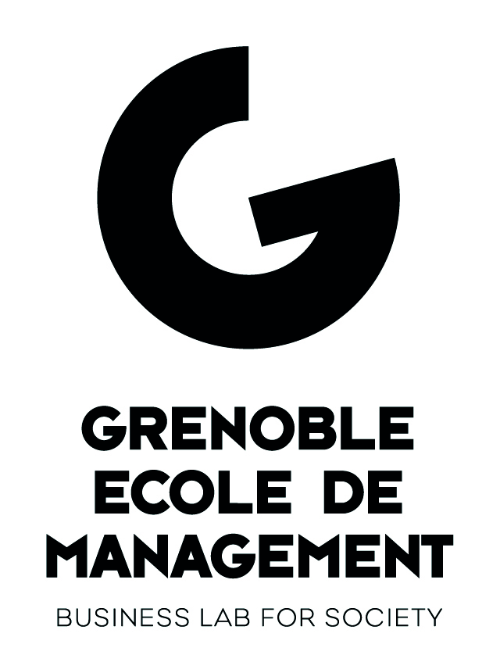By 2027, 44% of workers’ core skills will change, with abilities such as self-awareness, empathy, and active listening, becoming more critical than ever.
Yet for many professionals, developing these leadership qualities can be a challenge—this is where immersive programs such as an MBA can help.
BusinessBecause sat down with MBA graduate and leadership trainer Nicolas Gaillot to find out how investing in soft skill development has shaped his business approach.
1. Learn intercultural leadership skills
With over two decades of experience in HR and extensive work in business transformation, Nicolas (pictured) pursued a Part-Time MBA to enhance his intercultural communication skills and view his career through a new lens.

“At that point, I was working extensively with US-based executives, and I realized that building a common cultural bond would help me work more effectively with them,” he says.
The Part-Time MBA at Grenoble Ecole de Management (GEM) provided the ideal environment to achieve this goal.
With a curriculum that includes courses such as Intercultural Management and a cohort from diverse backgrounds, Nicolas developed practical skills for effective intercultural collaboration.
“Studying Intercultural Management was very useful when I was working on acquiring companies,” he says. “It provided me with a framework to fine-tune communication with people from different backgrounds.”
During his MBA, Nicolas collaborated with classmates from various industries, cultures, and seniority levels. Through this collaboration, he gained new perspectives that reshaped his approach to teamwork and problem-solving.
“We were quite a diverse group. Working with talented people who approached problems differently was eye-opening. It taught me humility and how rich collective intelligence can be.”
During the two-year program, Nicolas benefited from connecting with students from different MBA cohorts.
“Networking with so many people was invaluable—not necessarily for direct business opportunities, but for gaining connections that can open doors in indirect ways. Taking care of your network is, for me, a key asset in business.”
2. Cultivate negotiation skills and ethical leadership
Since completing his MBA, Nicolas has launched his own consultancy focused on leadership and management training and taken on HR roles across fast-growing companies in the life sciences sector.
Throughout his career, soft skills have been essential to managing discussions and solving challenges. Two areas Nicolas strengthened during his MBA were negotiation and organizational awareness.
A key lesson from the program was understanding that technical knowledge alone isn’t enough—leaders must also navigate social and organizational dynamics. This became clear during the MBA course Information System Management.
“Beyond the technical aspects of a role, leaders need to address certain social and organizational responsibilities,” says Nicolas. “This was especially useful for me. Working in small to medium-sized companies often means taking on multiple roles, including both head of HR and IT.”
This awareness complemented the negotiation tactics Nicolas developed during the program. While strategy and analytical skills are important, successful negotiation relies on human understanding—qualities such as patience and active listening that help move discussions forward.
The ethical leadership training Nicolas completed during his GEM MBA also left a lasting impression. As ESG (environmental, social, and governance) becomes a key concern for companies, ethical leadership is critical for balancing business goals with long-term social responsibility.
In France, initiatives such as the PACTE Act (Action Plan for Business Growth and Transformation)—which encourages companies to balance social and environmental impact with profitability—are helping redefine corporate responsibility.
“It became more and more obvious to me that ethical leadership was central to the business world,” says Nicolas. “In the years after my MBA, I saw how businesses were evolving, and having that foundation turned out to be very useful.”
3. Develop self-awareness to lead with influence
Today, effective leadership is less about having all the answers and more about understanding your own leadership style and identifying areas for growth.
As a leadership trainer, Nicolas has seen firsthand that true influence in business goes beyond authority or control. It’s rooted in self-awareness.
“We’re living in a VUCA environment—volatile, uncertain, complex, and ambiguous,” Nicolas explains. “The role of leaders is no longer to control or give orders. You don’t always have the information, or the power to influence outcomes directly.
“True influence comes from within, and it’s built on self-awareness.”
For Nicolas, the MBA was a turning point in this pursuit. He believes that working alongside classmates with diverse approaches to leadership and problem-solving taught him to reflect on his own thought processes and recognize both his strengths and areas for improvement.
“The value of the MBA is not just the content. It’s about understanding how you think—noticing your behavior, seeing how others work differently, and realizing where you need to develop,” he explains.
“It all comes down to your soft skills.”
Nicolas believes this focus on personal growth is what makes the GEM MBA experience truly transformative.
“After the MBA, you can expect to be a better leader, a better manager, and probably a better person,” he concludes.









